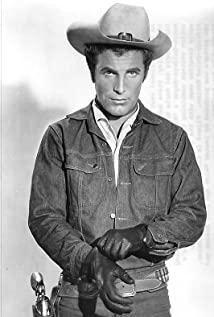But when I first saw it, I thought how could it be, this is obviously a tragedy.
In the 1970s, Rodriguez, a singer who was released from a record company after only releasing two albums in the United States, was brought to South Africa after selling no more than single-digit albums in the United States, only to receive a frenzy. Spread and follow, where he is much more popular than Elvis and the Rolling Stones.
However, South Africans don't know who he is or what he looks like, and while Rodriguez has become a legend in South Africa, he in America has absolutely no idea what's going on on the other side of the world. He did manual labor, built old and new homes for a living, and on a street corner in Detroit at night, bar-goers thought he was homeless.
Halfway through the progress bar, I closed the story at one point, and it brutally demonstrated to me the possibility of being completely unnoticed by talented people all the time.
Why is he not red? When Rodriguez's singing is matched with his figure walking the streets in the documentary, his magnetic and free voice sings the beautiful melodies and touching lyrics written by him into your ears, sentence by sentence, you will Had the same problem as Rodriguez's producers more than forty years ago. How could this voice that made the other half of the world go crazy and led the spirit of freedom and independence among the young people in South Africa had no local response back then?
Why are talented people not popular? This is actually a question that has been lingering in my heart for a long time. In my editorial career for several years, I have seen too many authors who write down-to-earth and whose style I admire, but are not as "red" as those authors who are impetuous, greedy for fame, lack of ink, and even plagiarize for a living. In this era where the number of fans, retweets, and click-through rates are gradually used as judgment criteria, "red" is a simple, accurate and mysterious word, which can easily arouse your yearning, as well as unwillingness and injustice.
Of course there are richer value propositions, but you can hardly escape the deduction of the fundamentals. More questions may point to why those people you admire don't get social treatment that matches their talents.
I tend to have a hard time answering these questions. After a long time, it gradually changed from anger to habit, and sometimes even succumbed to some chicken soup, and can only believe that existence is reasonable.
It wasn't until I saw this documentary that it made me feel trapped again. This is not a Van Gogh-style posthumous fame, it is a generational factor and aesthetic, and this is not one of the many regrettable and helpless cases around, it is too extreme, too paradoxical, too absurd, and too wonderful.
It was not found until 1998, more than 20 years later. Over the years, he and his children have moved 26 times. "Some of them don't even have a bedroom, so they can't be called home, but a place they've stayed."
After Rodriguez was found, he was invited to the house with the highest specifications. South Africa held a concert, breaking records every time. The daughter who went with him could not believe when he got off the plane that the carpet, flowers and luxury car were prepared for them. Facing the fans who were excited to tears, Rodriguez sang shyly and calmly, welcoming the cheers that were more than 20 years late.
The story here seems to be a happy ending. However, Rodriguez, who ended the concert, still chose to return to the United States and live a life of physical labor. He showed the photos of the concert to his co-workers, and they didn't believe that the man on stage was him.
At the end of the documentary, he asks: "Has he become rich now?" "No." His daughter replied, "Maybe he made other people rich."
I, who have always been consequentialist, felt a little sad when I saw this. But I don't think it's a tragedy anymore, a detail that makes me understand the beauty of this story.
Rodriguez's co-workers describe him as follows: He is a very hard-working person. He does all the dirty work that others don't want to do, but even when he is doing these things, he actually wears a tuxedo and is organized. Reasonable, neither humble nor arrogant, like doing a noble job. Rodriguez's daughter said that her father never made them feel poor spiritually. He took them to art exhibitions and concerts so that they did not feel a spiritual gap with the upper class.
This figure lingering in the dark night of the Detroit Pavilion, let me see a calm and calm approach to life. In such a teased fate, he insisted on the meaning of his life. Whether he is popular or not, pursued or ignored, his behavior always follows his heart. No matter what the rules of this world are, no matter what fate treats him. This may be more proud than "red".
His best songs were already written at that time. Legends or regrets belong to others.
View more about Searching for Sugar Man reviews










